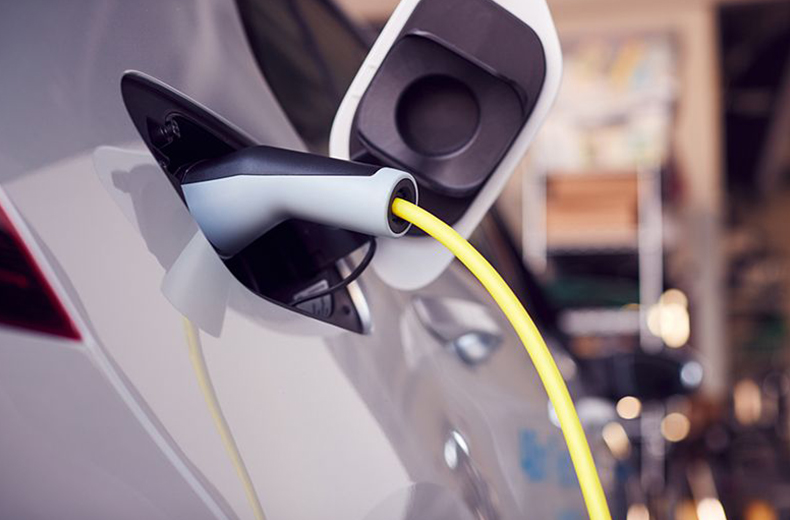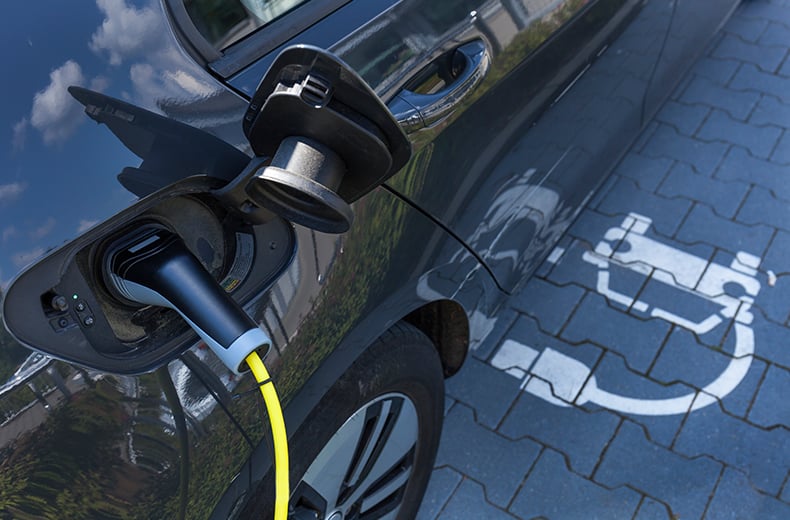It’s harder to say how long charging an electric car will take, but it needn’t be the severe barrier to entry it was a decade ago.
The speed and consistency of public charging is improving all the time. Eventually, we should reach a point where recharging scarcely takes longer than filling up with petrol or diesel fuel.
Until then, charging time is an important consideration when it comes to running an electric car - particularly if you're planning a long journey or preparing for a road trip.
Charging speeds vary, from as little as 15 minutes using an ultra-rapid 350kW charger, to as much as 24 hours when relying on a domestic three-pin plug.
If you’re considering buying or leasing an electric car, or you’re a new EV owner planning your first long journey, our guide to charging speeds will help.
Electric car charging speed calculator
The time it takes to charge an electric car depends on the size of the battery and the power the charger is putting out. You can use these values to calculate how long it will take to charge your EV.
In theory, that means a Renault Zoe with a 52kWh battery will take just over an hour to charge using a 50kW rapid charger. Whereas a newer, more expensive electric car like a Kia EV6 will take around half an hour to charge using a 350kW ultra-rapid charger.
However, that's unlikely to happen in practice because there are two key variable here: the average speed of the charge throughout the session, and the charging speed the car can actually accept.
Officially, the Renault Zoe will accept a maximum of 46kW, while a Kia EV6 will accept a much higher maximum of 233kW.
But both cars will likely only sustain that speed for 70% of the charge time, tailing off as the battery fills up.
This is why car manufacturers tend to quote a 10-80% charge time for their electric cars. In the Renault, that figure is 56 minutes, while the Kia manages a 10-80% charge in just 16 minutes.
Electric car charging speed at home

Charging at home is the most convenient and cost-effective way to charge an electric car. Stick the EV on charge when you arrive home from work and you’ll wake up to a fully charged car in the morning.
Get into a routine and you could find that you rarely require the public charging network - if, that is, you have the ability to charge at home. If you do, queuing at a petrol station will be a thing of the past.
You have two options when home charging: using a domestic three-pin plug socket or a dedicated wall box.
While a domestic socket is fine for occasional use, a wall box will deliver faster and safer charging for EV owners. Without one, it could take a few days to charge most modern electric cars.
It'll need to be installed professionally at a cost, but some car brands will include a wall box as part of an EV lease deal.
A typical home wall box will offer power outputs of 3.6kW or 7.4kW, while some are rated up to 22kW.
To charge a 63kWh Nissan Ariya electric SUV, for example, these are the charging times quoted by EV Database:
- Three-pin domestic socket: over 32hrs
- 3.6 kW wall box: 20hrs
- 7kW wall box: 10hrs
- 22kW wall box: 3hrs 30 mins (with Nissan's optional 22kW on-board charger)
It’s worth noting that 22kW wall boxes require three-phase power, which is rare and expensive to install. Most electric cars also don't have the capability to accept 22kW charging, or require an optional on-board charger.
Electric car public charging speed

As of October 2024, Zap Map's EV charging statistics page counts 36,000 charging locations in the UK with around 71,500 devices and 109,000 connectors. The number is growing all the time, as the country gears up for the 2035 ban on the sale of new petrol and diesel cars.
You’ll find charging points in car parks, motorway service areas, retails parks and at dedicated charging hubs.
Other locations include high streets, supermarkets, restaurants, hotels and even garden centres. Most are open to all, but some require a subscription or a certain type of EV.
For example, Tesla has its own 'Supercharger' charging network spanning most of the UK. While some locations now allow any electric car to charge at a Supercharger, most will only accept Tesla models.
Here are the charging speeds you'll find at these public electric car chargepoints.
Electric car non-rapid charging speed
Typically 6-12 hours
Also known – confusingly – as 'slow' or 'fast' charging, the reality is that this isn’t a particularly quick way to charge an electric car.
A slow charger (also known as an AC, or Alternating Current, charger) could be rated as little as 3kW or 7kW, while up to 50kW is considered fast. Anything beyond that falls into the rapid category.
A 3.6kW output is commonly associated only with home charging, and 5.5kW is the typical rating of a lamppost charging unit.
A charge time of up to 12 hours makes slow charging unsuitable for anything other than a home, workplace or destination where you plan to stay overnight.
Using a Vauxhall Corsa Electric as an example, a 7kW charger will take nearly 8hrs to fully charge it, while an 11kW charger takes closer to five hours.
The main benefit of slow chargers, other than their often convenient locations, is that the cost per kWh (unit of electricity) is often considerably lower than at rapid charging stations.

Cheaper than AA or we’ll beat by 20%^
• Roadside cover from £5.49 a month*
• We get to most breakdowns in 60 mins or less
• Our patrols fix 4/5 breakdowns on the spot

Electric car rapid charging speed
Typically 30-60 minutes
These days, DC (Direct Current) chargers which deliver power at between 50-100kW are known as rapid chargers.
They're best used either when you have somewhere you can go to (such as a café or shopping centre) while the car is charging, or in a location where ultra-rapid chargers are unavailable.
They're also ideal if you have an older electric car, or one with a smaller battery, which will only accept these charging speeds.
A Peugeot e-208, for example, will accept a maximum rate of 100kW, meaning a 10-80% charge is possible in just under 30 minutes. Meanwhile a Renault Zoe ZE50 will take closer to an hour to take in the same charge.
Electric car ultra-rapid charging speed
Typically 15-30 minutes
Ultra-rapid chargers deliver power at 100kW or more. Typical these are rated at 150kW, 250kW or 350kW, but the speed they'll actually deliver depends on the car and environmental factors.
While new electric cars are accepting ever-faster charge speeds, it's usually expensive models that benefit most from ultra-rapid charging, such as the Porsche Taycan, Audi e-Tron GT and Lotus Eletre.
Take the latest Porsche Taycan as an example A 10-80% charge can be achieved in as little as 18 minutes when using an ultra-rapid charger, but a full charge takes over 10hrs using an 11kW home wall box.
Even an EV able to accept a maximum of 50kW can use an ultra-rapid charger, although it won't reap the benefits in speed.
There are around 14,000 rapid or ultra-rapid chargers in the UK as of October 2024. Networks include BP Pulse, Gridserve, Ionity, Shell Recharge, MFG EV Power and Instavolt.
- Electric car charging – how it works and how much it costs
- Electric cars – a definitive guide and tips for buyers
- Electric car leasing explained – EV financing vs buying
Tesla Supercharger speed
Typically under 30 minutes
The Tesla Supercharger network boasts over 6,000 stations with 60,000 chargers across the world. A Tesla can add up to 172 miles of range in 15 minutes when using a 250kW V3 Supercharger.
While some owners of older Tesla models can still enjoy free access to the Supercharger network, most customers pay. The cost varies depending between individual sites and the time of day.
Tesla owners can also use standard Type 2 chargers. While non-Teslas can be charged at some Superchargers in the UK, most are only usable by Tesla owners.
What affects charging time for an electric car?
Aside from the battery size and charging unit, a number of external factors will influence the charging time for an electric car.
You may know that cold weather will reduce the range of an EV, but it can also slow the rate at which it charges.
Research shows that extreme heat can also have a negative impact on battery health, reducing its capacity over a long period of time.
This will result in shorter range estimates and the need for more frequent charging. Parking in the shade will help to the minimise the effects of extreme heat.
Electric cars generally charge to 80 percent at a faster pace, then rapidly slow down to protect the batteries. This, combined with the fact that you’re unlikely to arrive at a charging station with zero range, means that you’ll rarely fully recharge a battery.
The chargers themselves also vary in the actual speed they deliver. For example, sharing a charger with two connectors (or two chargers linked to one transformer) will halve the delivered speed. Some sites are also limited by the amount of supply the local electricity grid can deliver.
Saving time by planning ahead
If you’re travelling to an unfamiliar place or driving to a holiday destination, you might plan ahead by searching for petrol stations. You should do the same when driving an electric car.
The UK is well served by a network of public chargers, so you’ll almost certainly find somewhere to charge on route. However, using a tool such as the Zap-Map live map will tell you if the chargers are working.
There’s even a handy route planner tool, which allows you to select filters such as driving range, average speed and elevation.
Charging at home is always preferable to relying on the public network. You’re guaranteed a full charge and can save energy on the move by preheating or cooling the car’s cabin using the preconditioning function.
- Electric vehicle range – how far can I drive in an EV?
- The best electric cars available now
- The longest range electric vehicles
The RAC is leading the way when it comes to supporting drivers in the switch to electric vehicles.
An ever-increasing number of our patrol vans have built-in emergency mobile charging systems capable of giving an out-of-charge electric car enough power to be driven a short distance home or to a working chargepoint, while our All-Wheels-Up recovery system allows our patrols to safely rescue electric cars with no need for a flatbed.
Find out more about the RAC’s electric car breakdown cover, car repairs, from mobile mechanics or the RAC Approved Garage network.
Get a service or repair at home
RAC Mobile Mechanics can come to you, saving you the hassle of going to a garage.












